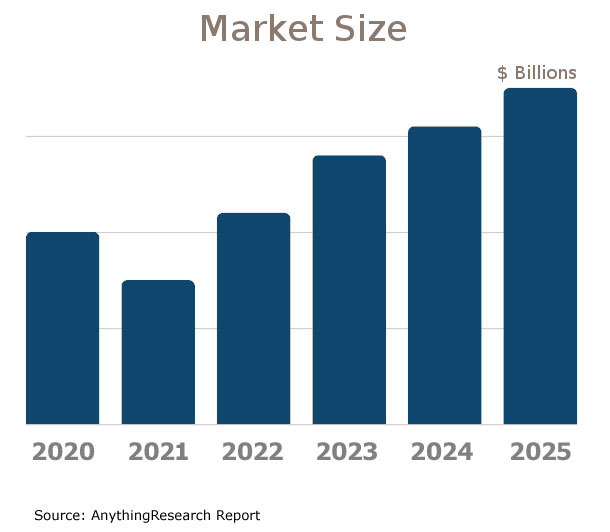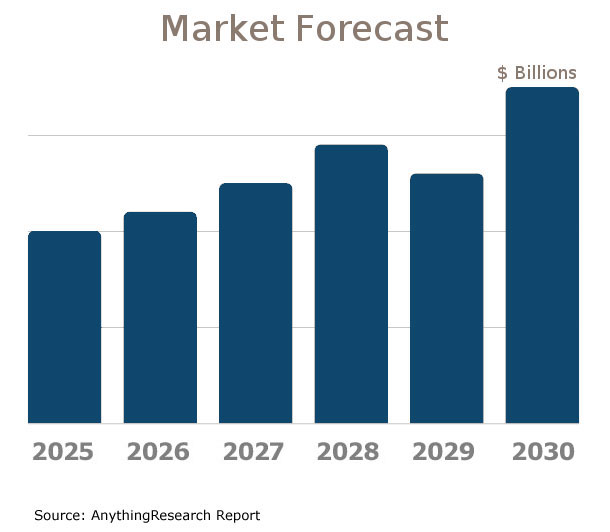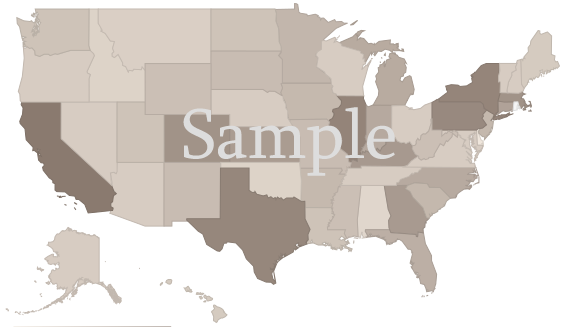| Standard Report | Premium Report | |
|---|---|---|
| Current State of the Industry |  |
 |
| Market Size (industry trends) |  |
 |
| Market Forecast (5-year projection) |  |
|
| Products/Services Breakdown |  |
|
| Revenue per State |  |
 |
| Financial Metrics |  |
 |
| Salary & Compensation Statistics |  |
 |
| Public Company Information |  |
 |
| Key Private Companies |  |
|
| Government Vendors |  |
|
| Instant Download - Available immediately upon purchase |  |
 |
Download both PDF and Excel


|
 |
 |
| Download now: |


2026 U.S. Industry Statistics & Market Forecast - Printing Ink Manufacturing
Market Size & Industry Statistics
The total U.S. industry market size for Printing Ink Manufacturing:
Industry statistics cover all companies in the United States, both public and private, ranging in size from small businesses to market leaders.
In addition to revenue, the industry market analysis shows information on employees, companies, and average firm size.
Investors, banks, and business executives use growth rates and industry trends to understand the market outlook and opportunity.

| Statistics | 2020 2021 2022 2023 2024 2025 | |
|---|---|---|
| Market Size (Total Sales/Revenue) |
Order at top of page | |
| Total Firms | ||
| Total Employees | ||
| Average Revenue Per Firm | ||
| Average Employees Per Firm | ||
| Average Revenue Per Employee | ||
Market Forecast
Market forecasts show the long term industry outlook and future growth trends. The following extended five-year forecast projects both short-term and long-term trends.

| Forecast / Industry Outlook | 2025 | 2026 | 2027 | 2028 | 2029 | 2030 |
|---|---|---|---|---|---|---|
| Market Forecast ($ millions) | ||||||
| Projected Industry Growth Rate (%) | ||||||
Industry Insights
Major trends affect the Printing Ink Manufacturing industry include:- Increasing environmental regulations
- Shift towards sustainable and eco-friendly inks
- Growth in digital printing technology
- Decline in traditional printing methods
- Rise of customized and on-demand printing
- Increasing use of UV-curable inks
- Expansion of packaging industry
- Technological advancements in ink formulations
- Impact of global supply chain disruptions
- Adoption of 3D printing technologies
- Greater emphasis on recycling and reusability in ink production
- Rise in raw material costs
- Increasing competition from digital media
U.S. Geographic Distribution: Revenue Statistics by State
Market Size by State ($ millions) indicates how the industry's competition is distributed throughout the country. State-level information can identify areas with higher and lower industry market share than average.
Income Statement (Average Financial Metrics)
Financial metrics provide a snapshot view of a benchmark "average" company. Key business metrics show revenue and operating costs. The data collected covers both public and private companies.| Industry Average | Percent of Sales (Industry Benchmark) |
|
|---|---|---|
| Total Revenue | Order at top of page |
|
| Operating Revenue | ||
| Cost of Goods Sold | ||
| Gross Profit | ||
Operating Expenses | ||
| Pension, profit sharing plans, stock, annuity | ||
| Repairs | ||
| Rent paid on business property | ||
| Charitable Contributions | ||
| Depletion | ||
| Domestic production activities deduction | ||
| Advertising | ||
| Compensation of officers | ||
| Salaries and wages | ||
| Employee benefit programs | ||
| Taxes and Licenses | ||
| Bad Debts | ||
| Depreciation | ||
| Amortization | ||
| Other Operating Expenses | ||
| Total Operating Expenses | ||
| Operating Income | ||
| Non-Operating Income | ||
| EBIT (Earnings Before Interest and Taxes) | ||
| Interest Expense | ||
| Earnings Before Taxes | ||
| Income Tax | ||
| Net Profit Net Income | ||
Financial Ratio Analysis
Financial ratio information can be used to benchmark how a Printing Ink Manufacturing company compares to its peers. Accounting statistics are calculated from the industry-average for income statements and balance sheets.| Profitability & Valuation Ratios | Industry Average |
|---|---|
| Company valuation can be measured based on the firm's own performance, as well as in comparison against its industry competitors. These metrics show how the average company in the Printing Ink Manufacturing industry is performing. | |
| Profit Margin Gross Profit Margin, Operating Profit Margin, and Net Profit Margin. Show company earnings relative to revenues. |
|
| Return on Equity (ROE) Return on Equity (ROE) is net income as a percentage of shareholders' equity. Shareholders' Equity is defined as the company's total assets minus total liabilities. ROE shows how much profits a company generates with the money shareholders invested (or with retained earnings). |
|
| Return on Assets (ROA) Return on Assets (ROA) is net income relative to total assets. The market research on Printing Ink Manufacturing measures how efficiently the company leverages its assets to generate profit. ROA is calculated as Net Income divided by Total Assets. |
|
| Liquidity Ratios | Industry Average |
|---|---|
| Bankers and suppliers use liquidity to determine creditworthiness and identify potential threats to a company's financial viability. | |
| Current Ratio Measures a firm's ability to pay its debts over the next 12 months. |
|
| Quick Ratio (Acid Test) Calculates liquid assets relative to liabilities, excluding inventories. |
|
| Efficiency Ratios - Key Performance Indicators | Industry Average |
|---|---|
| Measure how quickly products and services sell, and effectively collections policies are implemented. | |
| Receivables Turnover Ratio If this number is low in your business when compared to the industry average in the research report, it may mean your payment terms are too lenient or that you are not doing a good enough job on collections. |
|
| Average Collection Period Based on the Receivables Turnover, this estimates the collection period in days. Calculated as 365 divided by the Receivables Turnover |
|
| Inventory Turnover A low turnover rate may point to overstocking, obsolescence, or deficiencies in the product line or marketing effort. |
|
| Fixed-Asset Turnover Generally, higher is better, since it indicates the business has less money tied up in fixed assets for each dollar of sales revenue. |
|
Compensation & Salary Surveys for Employees
Compensation statistics provides an accurate assessment of industry-specific jobs and national salary averages. This information can be used to identify which positions are most common, and high, low, and average annual wages.| Title | Percent of Workforce | Bottom Quartile | Average (Median) Salary | Upper Quartile |
|---|---|---|---|---|
| Management Occupations | 10% | Order at top of page |
||
| Chief Executives | 0% | |||
| General and Operations Managers | 2% | |||
| Business and Financial Operations Occupations | 6% | |||
| Business Operations Specialists | 5% | |||
| Architecture and Engineering Occupations | 6% | |||
| Life, Physical, and Social Science Occupations | 9% | |||
| Office and Administrative Support Occupations | 9% | |||
| Installation, Maintenance, and Repair Occupations | 6% | |||
| Other Installation, Maintenance, and Repair Occupations | 5% | |||
| Production Occupations | 40% | |||
| Other Production Occupations | 30% | |||
| Chemical Processing Machine Setters, Operators, and Tenders | 13% | |||
| Chemical Equipment Operators and Tenders | 12% | |||
| Packaging and Filling Machine Operators and Tenders | 7% | |||
| Packaging and Filling Machine Operators and Tenders | 7% | |||
| Transportation and Material Moving Occupations | 7% | |||
| Material Moving Workers | 5% | |||
Printing Ink Manufacturing Competitor Landscape & Key Companies [PREMIUM]
The most influential companies in the Printing Ink Manufacturing industry and adjacent industries either have large market share or are developing new business models and methods that could disrupt the status quo. We look at leading and emerging companies in the Printing Ink Manufacturing industry and adjacent sectors:| Market Leaders: Direct Competitors Companies with the largest market share, focused in this industry |
Market leaders: Diversified Competitors Largest companies that have diversified operations in this and other industries |
| Innovators: Direct Competitors Innovative, Emerging, and Disruptive Companies that may influence the future direction of the industry. |
Innovators: Diversified Competitors Innovators and Disruptors in adjacent industries that may also affect the Printing Ink Manufacturing industry. |
Source:
Latest Industry News
- Doleco USA Introduces Full-Color Digital Printing for Cargo Straps - Doleco USA has introduced digital printing for cargo straps at its Charlotte, N.C., manufacturing facility. Fleets and manufacturers can now print high-resolution logos, photographs, and detailed designs in full color directly onto webbing. (07/07/2025)
- Epson Opens India’s First Ink Tank Printer Plant in Chennai - News: Epson inaugurates its first Indian plant in Chennai to locally manufacture EcoTank printers, advancing ‘Make in India’ and its commitment to sustainability. (07/07/2025)
- Epson Opens First Ink Tank Printer Manufacturing Facility In India - Seiko Epson Corporation has inaugurated its first manufacturing facility in India, located in Chennai. Developed in partnership with Epson’s manufacturing collaborator RIKUN, the new plant represents Epson’s entry into domestic production of its ink tank printers in India and is scheduled to begin operations in October 2025. (07/04/2025)
- Japanese major Epson makes manufacturing foray into India with new Chennai facility - Seiko Epson Corporation establishes ink tank printer manufacturing facility in Chennai, India to serve growing market demand. (07/04/2025)
- Material World: Sparxell Spills Ink, Modern Meadow Moves Mercedes - Sparxell’s first textile ink hits the market with Positive Materials while Mercedes-Benz tapped Modern Meadow’s Innovera for some auto-inspo. (07/04/2025)
- Epson Opens 1st Ink Tank Printer Factory in India - Epson inaugurated its first ink tank printer manufacturing facility near Chennai, boosting local production and aligning with the 'Make in India' initiative. The plant will produce EcoTank printers, starting operations in October 2025. (07/04/2025)
- Epson opens India’s first ink tank printer factory in Chennai - Epson opens ink tank printer manufacturing facility in Chennai, India, focusing on EcoTank printers for local market. (07/04/2025)
- How Many Recycled Ink Cartridges Does it Take to Save a Turtle? CartridgesDirect Reports - CartridgesDirect was able to save over 50,000 used printer cartridges from going directly to Australian landfills. (06/30/2025)
- 3D Printing Glass at Room Temperature: Myth or Reality? - A Lincoln Laboratory team successfully 3D prints complex glass structures at room temperature. Find out how here. (06/26/2025)
- 3D Printing Method To Print Tiny Flexible Circuits - The 3D printing method pulls ink threads to make circuits. It is simple, fast, and useful for smart and wearable devices. (06/26/2025)


Related Reports
Can't find what you're looking for? We have over a thousand
market research reports.
Ask us and an analyst will help you find what you need.


